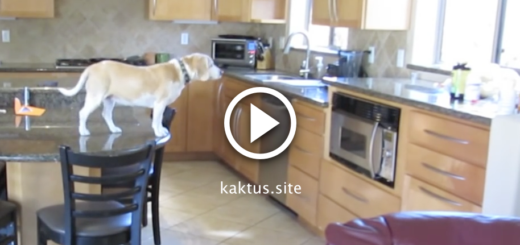Just a quarterly check-in. I should have seen it coming. The first call came two weeks after my termination.
I was in my home office, updating my resume, when my phone rang. Graham Vickers. I let it go to voicemail.
Victor, it’s Graham. We’re having some issues with the tenant portal. The junior team is working on it, but they’re having trouble understanding some of your code architecture.
Could you give us a call back? It would just be a quick consultation. I deleted the message and went back to my resume. Three more calls came that day, each voicemail sounding increasingly desperate.
By evening, Alan texted me. System’s been down all day. Maintenance requests aren’t processing.
Graham’s losing his mind. The next morning, Diane from HR called. Victor, I hope you’re doing well.
I’m calling because we’d like to discuss a consulting arrangement. Just temporary, to help with some current system issues. The compensation would be quite generous.
I picked up my phone. How generous? $300 per hour, minimum four-hour engagement. I’ll think about it and get back to you, I said, then hung up.
I sat at my kitchen table, staring out at the lake. Elaine placed a cup of coffee in front of me. What are you thinking? I’m thinking they’re finding out exactly what I’m worth.
Over the next three days, the calls increased. Graham, Diane, even Justin Bayview, who was still on the board. The tenant portal was down.
The maintenance scheduling system was throwing errors. The automatic payment processing had failed, affecting thousands of residents. I didn’t respond to any of them.
On day four, an email arrived from Devlin Systems, a regional competitor to Veltria. They managed fewer properties but had been expanding rapidly. The email was from their director of technology, Lawrence Devlin himself.
Victor, I heard about your situation at Veltria. We’ve always admired your work from afar. Would you be interested in discussing opportunities with us? We’re looking to upgrade our entire property management infrastructure.
I replied and set up a meeting for the following day. That evening, as Elaine and I were preparing dinner, my doorbell rang. Graham Vickers stood on my porch, his designer glasses slightly askew.
His normally immaculate suit wrinkled. Victor, I apologize for dropping by unannounced, but we have an emergency situation. The entire system is down.
Nothing is working. The team can’t figure out what’s wrong or how to fix it. I leaned against the doorframe.
That sounds serious. It is. We need your help.
The board has authorized me to offer you a substantial consulting fee. Five hundred dollars per hour. Whatever it takes.
I thought about the cardboard box in my garage. Eighteen years of work reduced to a few mementos. I thought about… nothing personal, just cost-cutting.
I thought about the documentation team they’d never approved. I’m sorry to hear about your troubles, I said quietly. But I have an interview tomorrow.
Something will turn up, just like I thought. I closed the door on his stunned face and went back to making dinner. For the first time since my termination, I felt a sense of peace wash over me.
Not satisfaction, not vindication, just clarity. I wasn’t going to help them fix what they’d broken. The interview with Lawrence Devlin went better than expected.
We met at a coffee shop in downtown Rochester, away from both companies’ offices. I’ve followed your work for years, Lawrence said, stirring his coffee. That integrated property management system you built at Veltria is legendary in our industry.
Nobody else has anything close to it. Thank you, I said. It took time.
That’s what I want to talk about, time. We’re looking to build something similar, but we don’t want to start from scratch. We need someone who understands the architecture, the integration points, the security layers.
Someone who can build us something better than what’s out there. I’m interested. Lawrence smiled.
Good, because I’m prepared to offer you the position of Chief Systems Architect. Full benefits, stock options, and a salary 20% higher than what you were making at Veltria. It was a good offer.
Too good, almost. Why me? I asked. There are younger engineers out there, cheaper ones.
Lawrence laughed. You sound like your former employer. We tried that route.
Hired three bright young engineers from top schools. They built us something sleek and modern that crashes every time we get more than a hundred simultaneous users. We don’t need cheap.
We need reliable. I accepted the offer the next day. Meanwhile, Veltria’s problems were escalating.
Alan kept me updated through occasional texts. The system had been partially restored, but critical functions were still failing. They’d brought in an expensive consulting firm that specialized in legacy system recovery.
A week after I started at Devlin, Graham called again. Victor, please, this is getting serious. We’ve lost access to payment records for the past three months.
Tenants are complaining about incorrect charges. The consulting team says they need your input on the database structure. I was tempted to ignore it, but something made me pick up.
Graham, I’m employed elsewhere now. Exclusive contract. I’m afraid I can’t help you.
We’ll double whatever they’re paying you for just two days of your time. It’s not about the money. Then what is it about? Revenge? Are you enjoying watching us struggle? I paused, considering my answer carefully.
No, Graham, I’m not enjoying it. But you made a business decision. You decided my experience wasn’t worth the cost.
Now you’re discovering what that actually means. The board wants to discuss bringing you back. Full salary, plus a signing bonus.
For a moment, I felt a flicker of satisfaction, but it quickly faded. Going back would solve nothing. The same executives who decided I was expendable would be waiting for the next opportunity to cut costs.
I appreciate the offer, but I’ve made a commitment to Devlin Systems. Graham’s voice hardened. You know, there could be legal implications if we discover you intentionally made our systems difficult to maintain.
Non-compete clauses. Intellectual property concerns. There it was.
The threat I’d been expecting. The system is exactly as it was when the company repeatedly denied my requests for a documentation team. I replied evenly.
Every line of code belongs to Veltria, as specified in my employment contract. I’ve taken nothing with me except my experience, but feel free to have your lawyers contact mine. I hung up, hands shaking slightly.
Not from fear, but from anger I hadn’t allowed myself to feel until now. The accusation that I’d somehow sabotaged them was the final insult. At Devlin I was starting fresh.
Building systems properly from the ground up, with full documentation, training programs for the engineering team, and redundancies that would prevent the kind of catastrophe Veltria was experiencing. I wasn’t going to look back anymore. But I wasn’t going to help them, either.
Some lessons had to be learned the hard way. A month after joining Devlin Systems I received an unexpected visitor in my new office. Alan, my former database administrator, stood awkwardly in the doorway, holding a laptop bag.
Got time for lunch? He asked. Over sandwiches at a nearby deli, Alan filled me in on the chaos at Veltria. It’s worse than you think, he said, lowering his voice despite the noisy lunchtime crowd.
They’ve lost access to historical data going back three years. The backup systems are corrupted somehow. The consulting firm is saying they might need to rebuild from scratch.
I wasn’t surprised. The backup system had multiple redundancies and security protocols that needed to be followed precisely. Skip one step and the entire process would fail in a way designed to protect tenant data from unauthorized access.
That’s not all. Alan continued. I found something when I was trying to help the consultants understand the payment processing system.
Graham had been planning your termination for months. He’d been meeting with the board, convincing them that your custom infrastructure was too expensive to maintain. How do you know this? Alan pulled out his laptop and showed me a series of emails he’d discovered in the system archives.
Emails between Graham and the board discussing the legacy staff reduction plan and specifically naming me as the first target. He told them they could replace you with cheaper engineers and transition to off-the-shelf solutions within six months, Alan said. He projected cost savings of over a million dollars annually.
I read through the emails, feeling a strange detachment. One line from Graham stood out. Hale’s custom systems are unnecessarily complex.
He’s made himself indispensable by design, not necessity. There’s more, Alan said. The private equity firm that owns Veltria is planning to sell.
They’ve been prepping for this for over a year. Graham was brought in specifically to cut costs and make the company look more profitable before the sale. Now it all made sense.
The push for standardization, the resistance to proper documentation, the sudden focus on reducing senior staff costs. It wasn’t about improving the company. It was about dressing it up for a quick flip.
Why are you showing me this? I asked. Alan closed his laptop. Because I quit yesterday, and I’m not the only one.
Half the IT department has left. The consultants are estimating at least six months to restore full functionality, maybe longer. He hesitated.
And because Veltria’s biggest client, Westbrook Properties, is considering jumping ship, they’ve lost faith in the management system. I thought about the implications. Westbrook represented nearly 30% of Veltria’s revenue.
Losing them would be devastating, especially with a sale pending. What will you do now? I asked. Alan grinned.
Actually, I was hoping Devlin might be hiring database administrators. Later that afternoon, I spoke with Lawrence about bringing Alan on board. He agreed immediately.
We were building a team, brick by brick, with people who understood what it meant to create systems that lasted. That evening, I received another call from Graham. This time, his voice had lost its authoritative edge.
Victor, please. The situation is critical. Westbrook is threatening to terminate their contract.
The board is questioning my decisions. We need your help. I’m sorry, Graham.
I can’t help you. Name your price, anything. It’s not about price.
It’s about respect for experience, for the work that goes into building something right the first time. The line was silent for a moment. You knew this would happen? He said finally.
You knew exactly what would break and when? No, Graham. I just knew what I had built, and what it took to maintain it. Information I tried to share many times.
I ended the call feeling neither triumph nor regret. Just the quiet certainty that some lessons can only be learned through failure. The opportunity came faster than I expected.
Two months into my role at Devlin Systems, Lawrence called me into his office. I just got off the phone with Jeffrey Westbrook, he said, referring to the CEO of Westbrook Properties. They’re officially terminating their contract with Veltria next month.























































